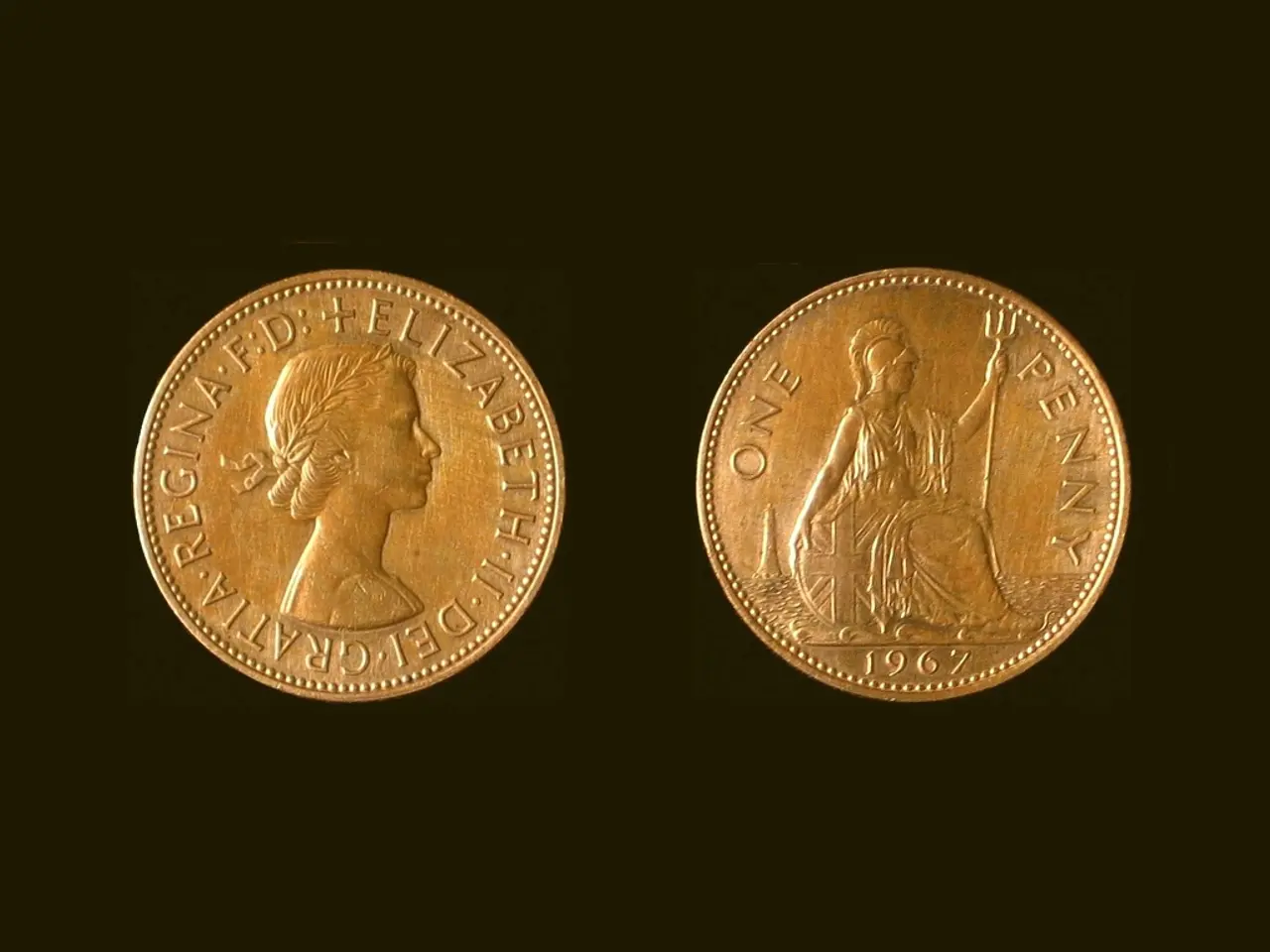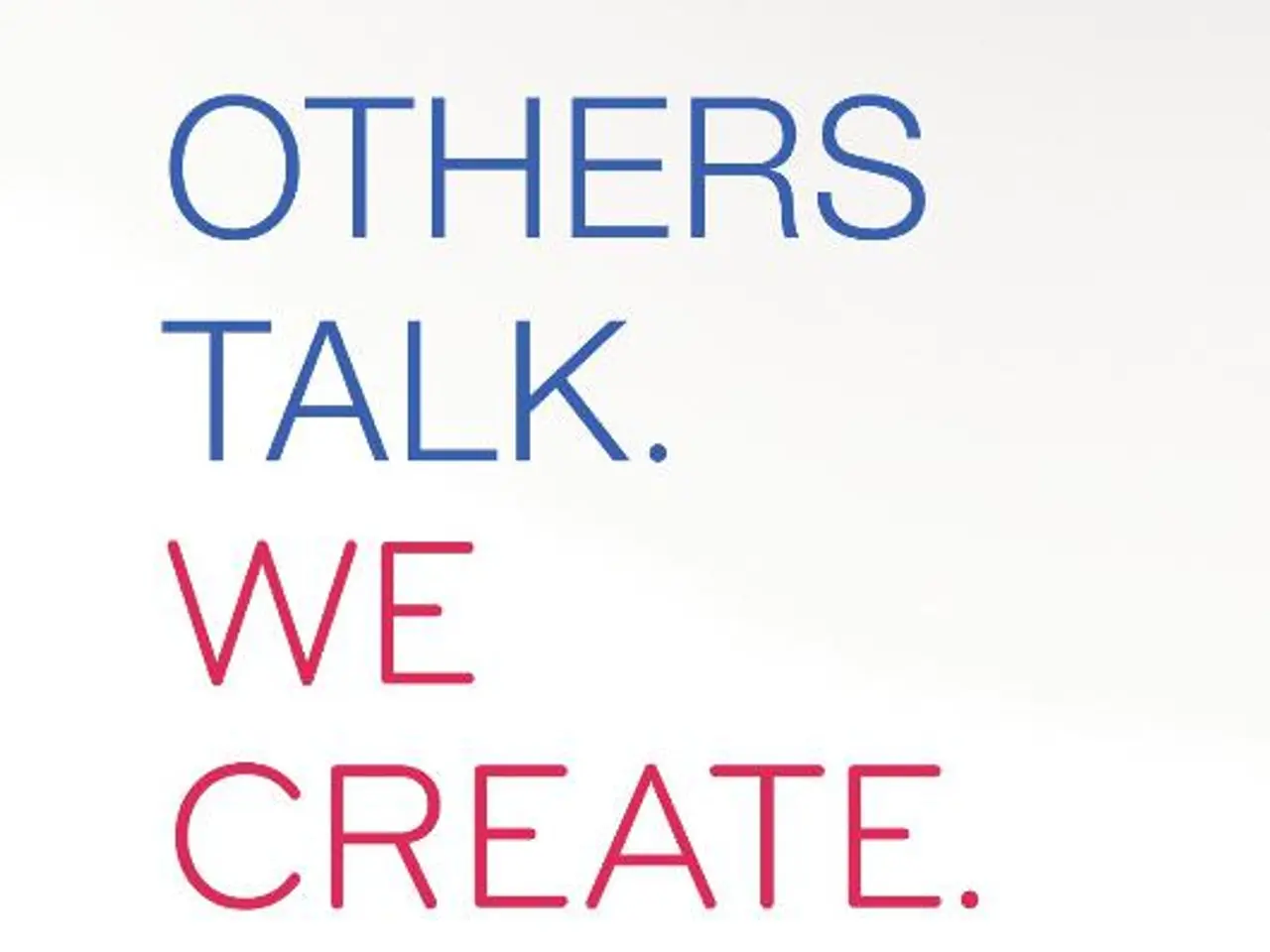Crypto trading made simpler: Coinbase Wallet introduces peer-to-peer transactions for purchasing digital currencies in local tender
In a significant move to broaden crypto acquisition channels, Coinbase Wallet, an American cryptocurrency company, has partnered with Onboard Global. This collaboration, announced in early 2025, integrates peer-to-peer (P2P) trading directly within the Coinbase Wallet app, enabling Nigerians to buy crypto assets using their local currency (NGN) and bank transfers [3].
Prior to this partnership, Nigerians were largely limited to informal, often risky, channels due to the Central Bank of Nigeria's 2021 ban on banks servicing crypto exchanges. The new integration offers a more secure, compliant, and user-friendly method, reducing reliance on these informal networks and minimizing exposure to scams [1][3].
The process is streamlined: users fund their Coinbase Wallet via Onboard’s P2P feature, select a trusted merchant, make a bank transfer, and receive their crypto within minutes [3]. This direct integration reduces friction and enhances accessibility for average users, who previously had to navigate fragmented and sometimes unreliable P2P platforms outside major exchange ecosystems.
Nigeria's regulatory environment for crypto and stablecoins is complex. Despite the central bank’s ban, stablecoin adoption (especially USDT and USDC) has surged, driven by demand for hedging against inflation and naira volatility [2]. The Securities and Exchange Commission (SEC) rules tentatively recognized crypto assets as securities or digital assets, but specific regulation for stablecoins remains under development [2].
Forex restrictions in Nigeria have historically limited access to foreign currencies, making stablecoins an attractive alternative for preserving value and facilitating cross-border transactions [2]. The Coinbase–Onboard partnership leverages this demand, offering a compliant on-ramp for USDC, which is increasingly used for remittances, online commerce, and savings [2][3].
The partnership has several implications. It provides easier on-ramps for Nigerian users, enhances the utility of crypto by bridging the gap between crypto and real-world spending, demonstrates how global platforms can adapt to local compliance requirements, and indirectly challenges the effectiveness of forex controls [2][3].
Key aspects of the partnership include: - Crypto Purchase: Informal, fragmented P2P vs Integrated, verified P2P within Coinbase Wallet [3] - Supported Assets: Mixed (often USDT) vs Focused on USDC (Base chain) [3] - Regulatory Risk: High (informal, unregulated) vs Lower (partially compliant, KYC-enabled) [3] - Forex Restrictions: Pushed users to gray markets vs Provides a semi-regulated alternative [2][3]
Notably, Nigerian users can buy crypto on Coinbase Wallet without Know Your Customer (KYC) for transactions under $100. Coinbase Wallet has also integrated Yellow Card's payment infrastructure for African users to buy bitcoin and USDC. The partnership's fiat onramp feature will begin rollout in Nigeria and expand to more than 50 countries within the next 12 months [3].
This partnership expands and formalizes crypto purchasing options for Nigerians, responding directly to regulatory gaps and forex restrictions. However, the persistence of forex controls and incomplete crypto regulation means this partnership also highlights ongoing tensions between user demand, financial innovation, and government policy in Nigeria.
- The Coinbase–Onboard partnership, announced in early 2025, offers a more secure and user-friendly method for Nigerians to buy cryptocurrencies using their local currency and bank transfers, reducing reliance on informal networks and minimizing exposure to scams.
- The partnership leverages the demand for stablecoins in Nigeria, offering a compliant on-ramp for USDC, which is increasingly used for remittances, online commerce, and savings, as a semi-regulated alternative to forex controls.
- The collaboration between Coinbase Wallet and Onboard Global indirectly challenges the effectiveness of forex controls, providing easier on-ramps for Nigerian users, enhancing the utility of crypto by bridging the gap between crypto and real-world spending, and demonstrating how global platforms can adapt to local compliance requirements.
- The new integration within the Coinbase Wallet app offers a verified Peer-to-Peer (P2P) method for crypto purchases, moving away from the informal, often risky, channels previously used by Nigerians due to the Central Bank of Nigeria's 2021 ban on banks servicing crypto exchanges.
- Coinbase Wallet has integrated Yellow Card's payment infrastructure for African users, enabling them to buy bitcoin and USDC, and the partnership's fiat onramp feature will begin rollout in Nigeria and expand to more than 50 countries within the next 12 months.




